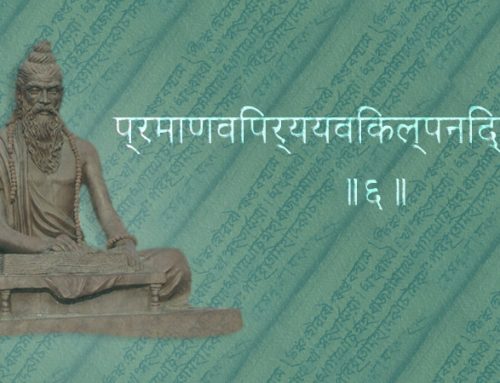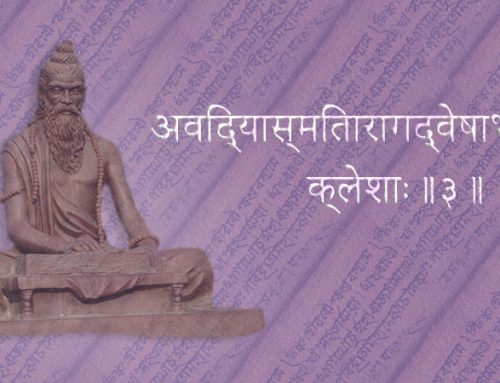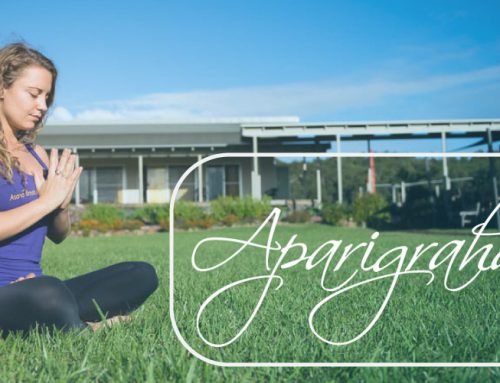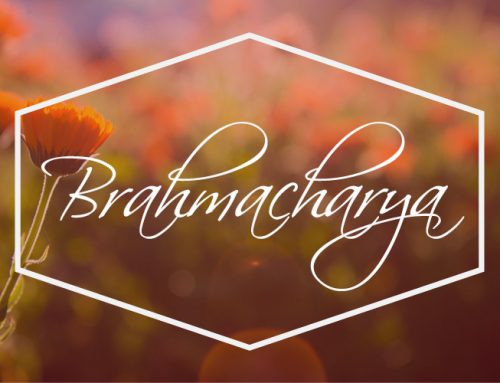
“I wish I knew how it would feel to be free” follows the famous Nina Simone lyrics. In this first of a series of articles exploring the complex subject of karma, Brook McCarthy looks at how the path of karma yoga enables one’s mind to become calm, karmic consequences to cease, and liberation to be attained.
With the best of intentions, we all get caught up in minutia of daily life. We may become easily frustrated or angry when the results of our actions don’t turn out the way we hoped, or we indulge in self-pride when the results we hoped for eventuate. We are constantly swinging between highs and lows and dwelling on the intricate details of how best to manipulate actions to get what we want.
Karma yoga is a path to equanimity of mind and enlightenment, where we no longer have these countless frustrations.
Generally, we believe that we are active participants with control over our own destiny, which is why we become dissatisfied when things don’t go the way we planned. A person following the path of karma yoga realises that God is the only true doer. This belief is not unique to Hinduism – in Christianity, it is expressed as: “Not my will but Thine be done, O Lord.”
Karma yoga means that actions are done without any expectation of a personal result or reward. “The mind of the karma yogi grows calm because they are satisfied that they have done their job to the best of their ability and they dedicate the results to God,” explains John Ogilvie, senior teacher and founder of Byron Yoga Centre.
“Karma yoga is different from the law of karma, or cause and effect. The law of karma affects those who believe they are the doer so the results of a karma yogi’s actions have no karmic consequences.”
Karma yogis see themselves as instruments of God’s will and with this comes peace of mind. Patanjali refers to this in the Yoga Sutras as ‘Yoga chitta vritti nirodha’: yoga is the cessation of the fluctuations of the mind.
“The karma yogi appreciates that everything in life is transient and that difficulties are opportunities to learn compassion, so they give thanks for everything,” says John. “In the Bhagavad Gita, Krisna defends the ‘right kind of action’ and the importance of dedicating ourselves mindfully and wholeheartedly to one’s dharma, or duty. Krisna says that karma yoga transforms any mundane activity into spiritual practice because it is dedicated to God.”
Dharma, as discussed in the Bhagavad Gita, referred to the professional obligations one had in relation to one’s caste. Although the concept of caste duties is no longer relevant to our modern society, finding one’s life purpose remains a very modern dilemma. So what action is right action?
In modern times, right action has been interpreted to mean that the nature of your work is less important than the attitude of your heart and mind that you bring to it. We can do the same action with either selfish or selfless intent. By freeing our thoughts from selfish motive, anger, greed and hatred, we purify our intent behind an action and the results of the action become liberating rather than binding.
You may have found yourself immersed in a task and noticed how time seems to halt and a sense of unity arises as you no longer feel a separation between you ‘the doer’ and you ‘the thinker’. This sense of immersion, or ‘flow’, has been identified by cognitive scientists as the closest they can identify to an experience of happiness.
Learning to be free
So how do we stop believing we are the doer and that God is in charge? In the Bhagavad Gita Krisna says that your true Divine Self can only be known by controlling your senses with the mind and by devoting yourself to God.
We can devote ourselves to God in whatever form we identify as Divine. We control our senses through the eight limbs of yoga – through pranayama breathing regulation, the fourth limb, through pratyahara, sensory withdrawal, the fifth limb, and through dharana, concentration and dhyana, meditation, the sixth and seventh limbs.
The other limbs of yoga all teach us to think and act mindfully with others, with ourselves and our bodies. Selfless service to God, or seva, is another step towards appreciating the Divine Self in all people.
“Seva is the underlying basis of our Yoga Centre,” says John. “Giving all profits from our $5 classes to charity, being actively involved in our preferred three charities, and making yoga more accessible to more people allows our students, our teachers and our business to be involved in seva.”
Each of us has a tiny spark of divinity within us; a common analogy is that we are all a water droplet in a vast ocean. You may have had a fleeting experience of this during meditation, during yoga class or when looking into the eyes of a loved one or a stranger.
Once your buddhi, or intellect, realises the Divine Self within, these unite and you become enlightened, liberated from the law of karma which sees you reincarnated into countless lifetimes.
We each have a tiny spark of Divinity within us. Recognising this, we need only act selflessly in service to God.
Lokah Samasta Sukhino Bhavantu
Translation: May all beings everywhere be happy and free. And may the thoughts and actions of my own life contribute, in some way, to that happiness and that freedom for all.
Please join Byron Yoga Centre in its karma yoga by attending a yoga class at our new Byron Street premises. All profits from all classes, priced at $5, go to our three preferred charities: The Buttery, Rainforest Rescue and ISKCON Food for Life Program.
Related articles




